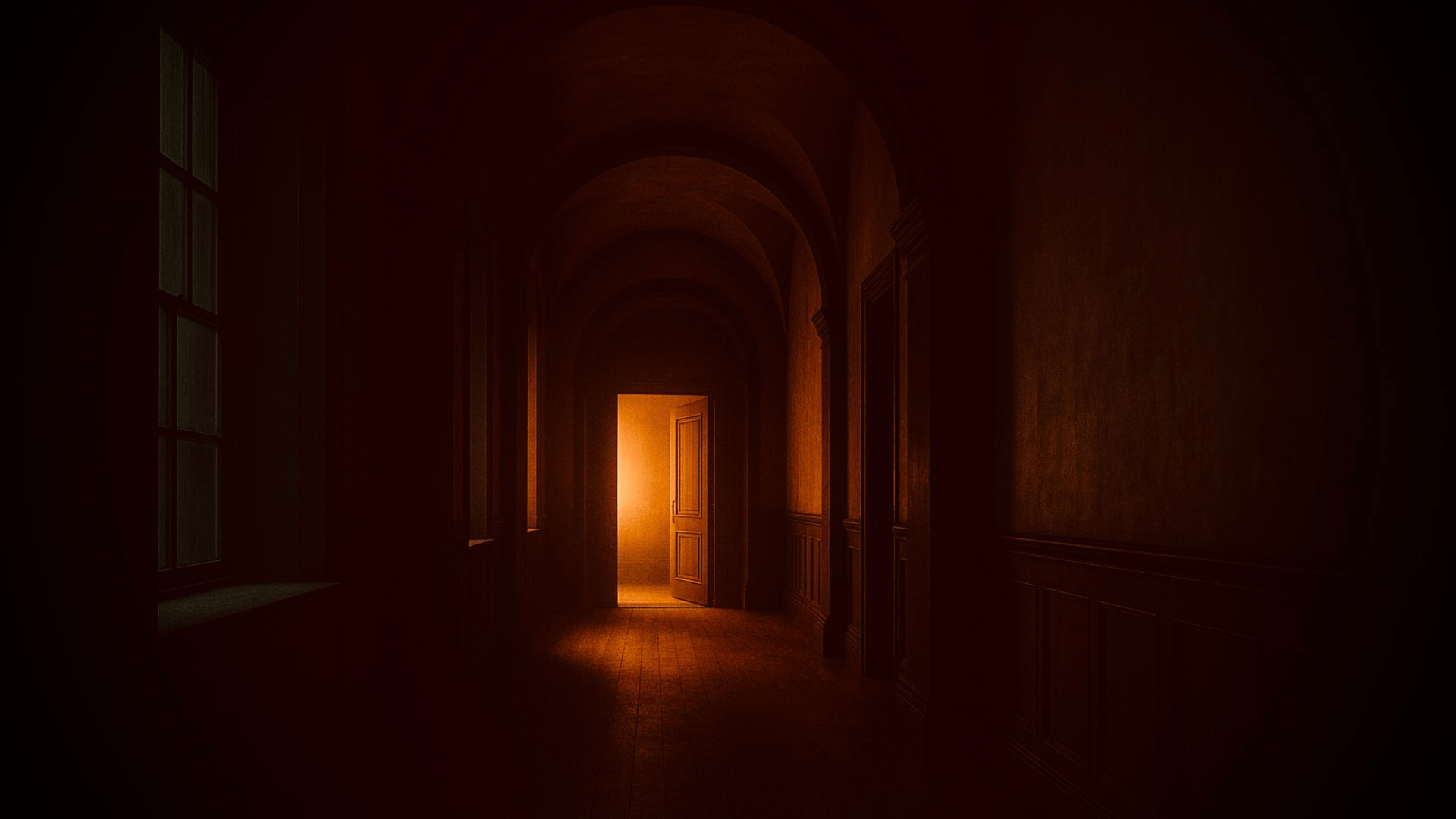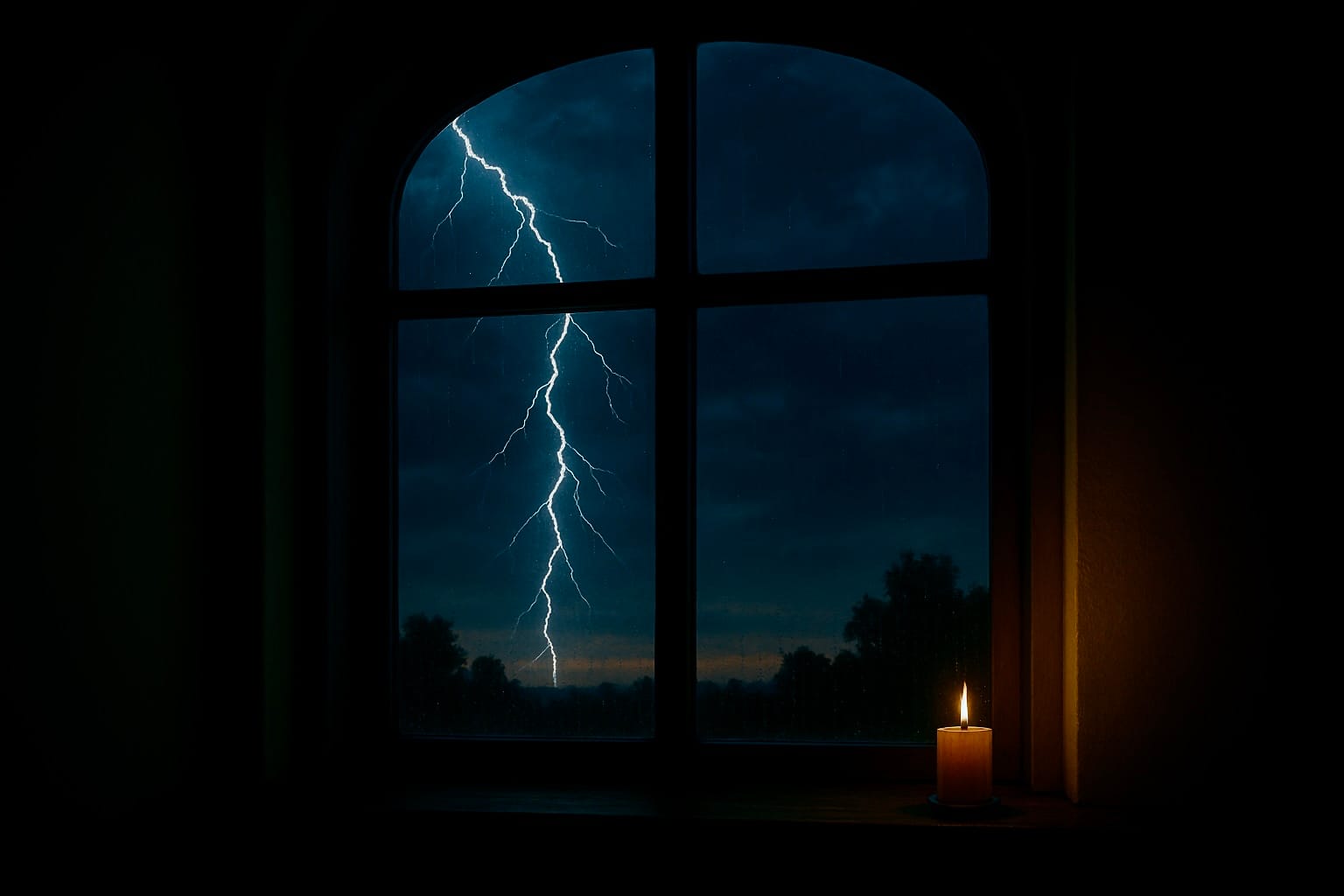On the Enduring Unnoticed
There's a light in the hallway that flickers sometimes.
Not every day—just enough to make me notice, and never when I try to show someone else. It's the ceiling bulb above the console table, the one with the slightly warmer glow—light that softens the edges of things, lets dust rise with more ceremony. Last Tuesday, as I stepped out for lunch, it blinked once—slowly, deliberately—then held steady again. Like it had changed its mind. Outside, thunder had been rolling through the afternoon, an unseasonal chill lingering in the air for early June.
I didn't think much of the flickering at first. Probably a wiring issue, I told myself. Something simple, explainable. The same way I tell myself the rumors at work are just rumors. For months, this bulb has illuminated the hallway without my notice—thousands of steady hours, reliable as breathing. But the more I watched these interruptions, the less they seemed like failure. It didn't flicker like a dying thing. It paused. It hesitated. It listened.
This morning brought another small interruption: a faint vertical line appeared on my work laptop, bisecting the screen with surgical precision. Broken in places but persistent. The storms had been coming nearly every day for the past two weeks, and this felt like their indoor echo—subtle, recurring disturbances that pull at the edges of attention. How many mornings had I opened this laptop without seeing anything but the seamless display of my tasks? How many times had I taken its smooth function for granted, the way we take for granted the thousand invisible labors that sustain our days? I noticed it while answering emails and tried to blink it away at first. But it held. It slices through tasks and timelines, severing the illusion of smooth continuity. The more I looked, the larger it felt—not in scale, but in suggestion. A quiet divider between what I'm doing and what I'm really doing. Between the meetings I attend and the job I might not keep. Between the words I write and the silence that receives them.
That morning, I stood under the bulb with my hand on the doorframe, waiting. Five full minutes. Through the window, gray clouds pressed against the glass, but inside, the light didn't flicker again. It held. The line on my screen remained—not a glitch, exactly. More like a presence. A soft fracture that watches back.
I began to understand something about patience then. Not mine—theirs. These are minor things, I know. A flicker. A line. A whispered conversation on the Zoom call as I join. But they linger. They become part of the hour, part of the uncertainty that shapes each day.
In his Duino Elegies, Rilke wrote about our fragile relationship with objects—how they risk oblivion unless we transfigure them into consciousness, becoming "bees of the invisible" who labor to distill their essence into language. Not patient witnesses, but things that demand our attention for their very survival. I think about that urgency sometimes, standing beneath the hallway light or squinting into the screen. The bulb has flickered through seasons I've forgotten, but mostly it has simply been—present, reliable, enduring unnoticed until the moment it chooses to remind me it exists. The laptop has processed thousands of my small urgencies with invisible efficiency. Perhaps they don't wait for us to notice. Perhaps they insist. It's not just that they persist beyond my awareness of them. It's that their very reliability makes them disappear from consciousness—until the flicker, the line, the small rebellion that says: I am here. See me. Say me into existence before I fade.
Eventually I returned to my desk. There were meetings to join, messages waiting, the careful performance of productivity in an unstable time. But the morning had already shifted—its usual momentum disrupted by that pause beneath the bulb, by the hairline interruption across the screen. I carried those moments forward, faint and humming, like the sound of distant conversation I'm not meant to hear.
There's something elegiac about the way these things resist us. A bulb that won't perform on command. A screen that won't stay smooth. A job that won't guarantee tomorrow. Words that won't find their readers. They don't yield. They don't explain themselves. They simply are, with all the quiet stubbornness of existence itself.
The rumors flicker through the office like faulty wiring—persistent, unpredictable, impossible to ignore once noticed. I return to my tasks with the same approach I take with writing: I can't be drawn into the grand economics of collapse. I have no guarantee of security, so I must work to feed my life. I have no readers, so I must write to feed my soul. Each day becomes an act of faith in small continuances.
Perhaps this is what persistence looks like—not grand gestures, but small rebellions against entropy. The bulb flickers but doesn't die. The line appears but doesn't disappear. My words accumulate without audience, like sediment. I wonder sometimes if this is how I exist in the world—enduring unnoticed, reliable until I'm not, taken for granted until I flicker or fail. Will my disappearance be the interruption that finally draws attention, the way the bulb's pause makes me see the thousand hours of steady light I never acknowledged? Or will I simply fade into the background hum of things that worked and then didn't, noticed only in retrospect, if at all?
These words might one day be seen, long after I'm gone—like thunder arriving after lightning, the slow echo of something already vanished. What remains is not the flash, but the hollow reverberation. A shape in the air. A trace of intention that outlasts its maker, enduring unnoticed until someone stumbles across it in the digital equivalent of an attic, wondering who wrote these quiet observations about lights and screens and the small persistences that hold our days together.
Outside, the rain falls in sheets. Lightning stutters across the sky, each flash a small rebellion against the dark. The storm rages on, flickering but not dying, broken in places but somehow whole.
Inside, the light holds steady. For now.
We persist.
— Dean Bowman
Thursday, 5 June 2025




